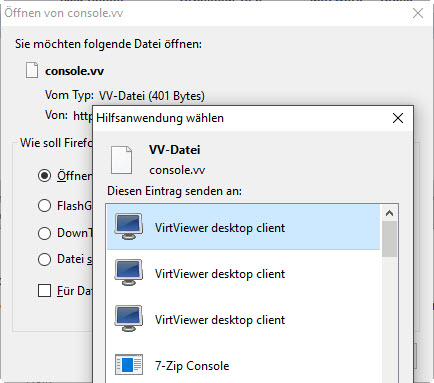The Bareos File Daemon is a program that must be installed on each (Client) machine that should be backed up. At the request of the Bareos Director, it finds the files to be backed up and sends them (their data) to the Bareos Storage Daemon. Bareos can be installed on UCS systems with just one click, using the Univention App Center. Once installed, it fits into the Univention Management Console (UMC), meaning that you can include every managed client into the Bareos server configuration.
Client servers will need to have bacula-fd and bconsole installed, the. AICT Connected Support created a great guide for installing Bacula on Mac OS X Server. Jan 25, 2017 - Dear all, it has been a while since I worked with Bacula. And this is the client part in the director on the backup machine: Client {.
Client Installation and Configuration Getting your Configuration Files After submitting your request the Central Backup Administrator will generate configuration files for your server. Once they are generated you can go to and login with your CCID. Your server will be listed there with a link to your servers configuraiton files. The link will take you to a directory with three files which are explained below. server-fd.conf - Rename this bacula-fd.conf. This contains all the information necessary for the bacula server to authenticate to your server.
server-bconsole.conf - Rename this to bconsole.conf. This contains the informatin needed for you to connect to the bacula server with bconsole. The bconsole applicaitons is what you will use to restore files from your backups.
server-dir.conf - This file is just a reference for you. It contains the FileSet and Schedule for your server. Getting the Software Client servers will need to have bacula-fd and bconsole installed, the software can be obtained directly from the for a variety of platforms. New clients are deployed on Bacula 5.0.3 servers, please use a version from the 5.0.x series on your client. Generic Instructions Please note that the Bacula project provides exceptionally detailed documentation about the architecture, installation, and operation of their software and for this reason we will not be duplicating it. Please familiarize yourself with their documentation. Starting with their docs will be especially helpful.
The Bacula File Daemon ( bacula-fd) is the essential part of the client software that facilitates backups but you will also need to install bconsole in order to have the ability to perform restores. The bconsole utility might not be included in the default client-only install for your platform (e.g.
OpenBSD), in that case you will likely need to perform a full server install to have access to it. If you have to install the server package be sure to check that the other Bacula daemons ( bacula-dir and bacula-sd) are disabled after the install. Windows and FreeBSD client installs should not require installation of server components. After the install is complete please take care to ensure that your client is visible and can communicate with the Bacula server. This includes appropriate configuration of any firewalls or other filtering devices/software; the client bacula-fd daemon listens for connections from the server on TCP port 9102 and should be allowed to make unrestricted outbound connections to the 129.128.31.128/27 and 129.128.98.0/24 subnets. We restrict communication with the Bacula daemons on our servers to your client machines, and offer the suggestion that you do the same: restricting access to the client server's bacula-fd port to only your assigned backup server. If everything has been installed correctly you should be able to test connectivity of your bconsole.
The bconsole provides you with access to your jobs and clients only, and we have enabled the following commands: run, cancel, restore, messages, help, and exit. Information about the use of bconsole is available in the project's documentation: Macintosh Installation AICT Connected Support created a great guide for Windows Installation For supported Windows server operating systems (2003 and 2008) please go to download the installer. Admins with Server 2008 running on contemporary server hardware should install the 64 bit version (win64bacula), everyone else should install the 32 bit version (winbacula). You must be logged in as Administrator to the local machine to do a correct installation, if not, please do so before continuing. Monosnap for mac video with sound.
Do not attempt to install while logged in as a domain administrator account. If you do so, you will experience problems while attempting to run Bacula. Due to the variability observed in the location of Bacula client files on different versions of Windows Server please be mindfull which directories the client is being installed into; you will need to verify and potentially change values in the configuration files it generates, specifically the 'Name' and 'Password' values (all of them). As described above we will email you the link for the customized config files that contain these values (bacula.conf and bconsole.conf). Install instructions with screenshots for an older version of Bacula that can be used as a rough guide can be found here: Unix like Servers Administrators with unix(-like) servers would be well adviced to install the client through whatever package management mechanism your operating system provides as long as the acceptable version is available.
I’ve been experimenting with the Open Source backup system ‘‘, which is gaining popularity as an alternative to the venerable. I wanted to use my Linux machine to backup our two Macs, so I needed a version of the Bacula agent bacula-fd which was built for Mac OS X. That turned out to be pretty easy to do, but since I’ve had an amazing number of visitors to, I thought I’d put this up here too in case anyone else is looking for it. So containing the basics. Note that this doesn’t contain any of the other bits of Bacula, only the file daemon that you’ll need if you want to back your Mac up over the network from elsewhere. I haven’t done extensive testing, but it seems to be working OK. This is from Bacula 1.38.2, and was built on Mac OS X 10.4.3.

Some quick notes on how to use it: The path names here can be changed if you edit the appropriate config files – these are just the ones I used. Copy bacula-fd to /usr/local/sbin (creating the directory if necessary).
Ftp Client For Mac
Edit bacula-fd.conf to your requirements. See the Bacula website for docs if you don’t know how to do this. Copy bacula-fd.conf to /usr/local/etc (again, creating the directory if necessary). Set the permissions so that bacula-fd.conf is not generally readable. Create the directory /var/bacula/working as a working directory. You probably want hfsplussupport = yes in the Options bit of the FileSet declaration on the server. You can now test it from the command line with sudo /usr/local/sbin/bacula-fd -c /usr/local/etc/bacula-fd.conf Add -f and -d100 if you want it to stay in the foreground and print debugging info.
Macx video converter for windows. Its powerful DVD copy feature lets you backup DVD to single video file (MPEG, MKV and ISO image) flawlessly.
Barrios Client For Mac Free
On Tiger, the right way to start things on boot-up is to use launchd. Copy bacula-fd.plist to /Library/LaunchDaemons (editing it if you’ve used any different paths). You can use sudo launchctl load /Library/LaunchDaemons/bacula-fd.plist to load it into your currently-running launchd. You should then be able to see it with sudo launchctl list. Assuming that worked OK, you can start the daemon running with sudo launchctl start org.bacula.bacula-fd. Hi Adam – Actually, if memory serves, I think it was pretty simple – there aren’t many dependencies here because the File Daemon bit is pretty straightforward.
I’m not sure how familiar you are with the basic process – so apologies if this is all obvious – but assuming you’ve got a recent version of the Apple Developer Tools installed, you should just be able to download the bacula source, unpack it in a directory, change into that directory and run:./configure -enable-client-only make all You can see the options to any given ‘configure’ by running it with a ‘–help’ argument. This particular one supports ‘–enable-client-only’ which tells it not to build most of the stuff that’s likely to be on a server – the director, storage daemon etc. They do have rather more dependencies on things like MySQL, so would be more challenging. Normally, I then run: make -n install which does a dry-run of the installation, and lets me see where things are likely to be installed.
In my case, I wanted to tweak some of these, so my eventual build and install was: make clean./configure -enable-client-only -prefix=/usr/local -with-working-dir=/var/bacula/working make all sudo make install On most versions of Unix I would use the ldd bacula-fd command to ‘list dynamic dependencies’. On the Mac, the equivalent is otool -L bacula-fd. In this case, there are very few and they look like standard system libraries, so I was happy distributing it as it stands.
Curse Client For Mac
I’m not sure whether the configure script arranged for anything else to be statically linked, or whether the file daemon just doesn’t need much more than this! For those interested, I packaged these files up as proper OS X installers. It makes things a bit easier, as the installer will make the necessary directories, run the launchctl scripts, etc.
However, you’ll still have to edit the config files by hand. The easiest way to get those changes to apply would be to restart the Mac. (The installer starts the client after installation and on subsequent reboots.) Because I’ve used launchctl, these installers will only work properly in 10.4 Tiger and newer. I’ve made installers for both PPC Macs and Intel. It would be nice if we could make an AppleScript that would ask the user for the hostname, director’s name, and password.
Then we wouldn’t have to edit the config file at all. Alas, I’m just not that smart. Anyone else finding that “Alexa, play Radio 4” doesn’t work in recent days? The solution seems to be not to go via. RT: Dear friends, this is brilliant. It's worth watching just for the delivery of the last line. Oh how we have fallen in t.
'Those that travel the high road of humility in Washington DC are not bothered by heavy traffic'. From the fabulo. T'was Christmas in the Workhouse // Ah, the world is a poorer place since the departure of Terry Wogan. RT: New York in 1950, as imagined in 1925.
